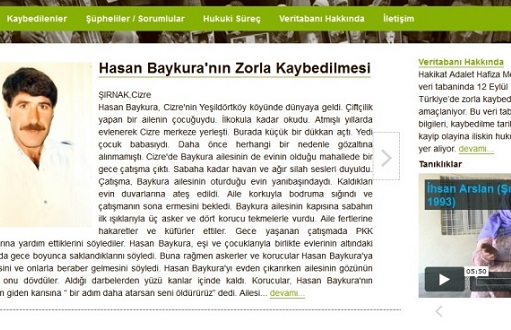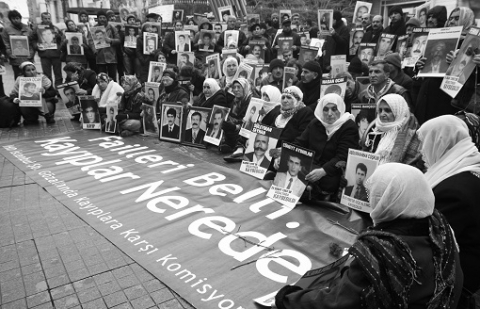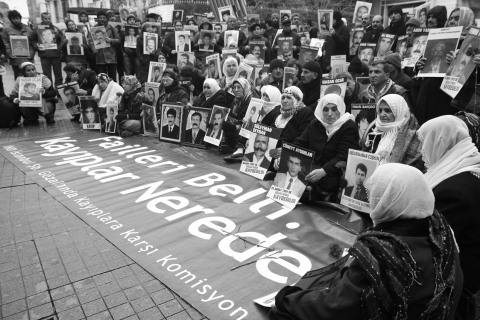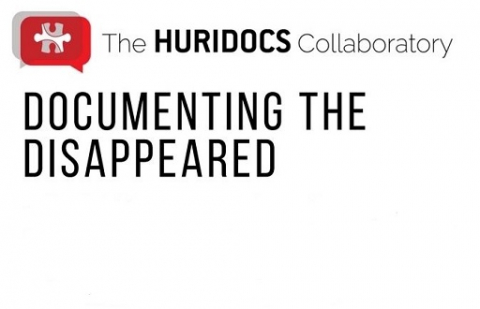
Database on Enforced Disappearances is Open!
We have prepared a database aimed at gathering the information of those who have been forcibly disappeared in Turkey since the 12 September 1980 military coup. The database, accessible at the web address hakikatadalethafiza.org or zorlakaybetmeler.org, contains personal information of the disappeared, as well as the date, location, and story of their disappearance, legal data relating to their disappearance, as well as the names of the suspects.
The database does not yet contain information for everyone who was disappeared following the 12 September 1980 military coup. Our goal is for this database to contain the data related to all of those who were forcibly disappeared.
The definition and criteria of enforced disappearance
According to the United Nations International Convention for the Protection of All Persons from Enforced Disappearance, enforced disappearance is defined as “(…) the arrest, detention, abduction or any other form of deprivation of liberty by agents of the State or by persons or groups of persons acting with the authorization, support or acquiescence of the State, followed by a refusal to acknowledge the deprivation of liberty or by concealment of the fate or whereabouts of the disappeared person, which place such a person outside the protection of the law.”
After the remains of the disappeared person are found, it is still questionable in several regards as to whether or not the action was an enforced disappearance. For the relatives of the disappeared, the act of disappearance occurs during the search for them; even if the remains of the disappeared person taken by state forces or those acting on behalf of state forces are found, the person’s fate, how he/she died, is still unclear, and methods of destruction are mainly carried out by means of disappearance. As a result, while working on this database for enforced disappearances, we did not discriminate between those whose remains have been found and those whose remains have not been found.
As we were developing the database, we evaluated all actions that fit within this definition as enforced disappearance. As the Truth Justice Memory Center, we developed the database using information we received from interviews conducted with the relatives of the disappeared, applications for enforced disappearances to the European Court of Human Rights, as well as information from lawyers and bar associations that have worked on cases of enforced disappearance, particularly in Istanbul, Cizre, Silopi, İdil, and Diyarbakır.
To verify the information in the database, we accepted:
- Testimonies of the relatives of the disappeared;
- Reports by the Turkish Grand National Assembly’s Committee on Human Rights Inquiry;
- Legal documents that have been submitted to local courts;
- Investigative documents for situations in which the prosecution office’s investigation is ongoing;
- Complainant petitions used as a means of legal remedy;
- Applications to and decisions from the European Court of Human Rights (ECtHR); and
- Verified reports signed in the presence of lawyers.
Whenever different sources contradicted one another as we were developing the database, we used legal documents to determine which information to record. This was because the most reliable information in overcoming the practice of impunity is legal information and because calculating the statute of limitations or determining the perpetrators must be conducted using legal data. However, when the testimonies of the relatives of the disappeared contradicted the legal data, we appended the information from the testimony. We gave precedence to information from the ECtHR’s resolved cases. We also distinguished applications to the ECtHR with the same precedence.
We have expended significant efforts in order to verify the information we are sharing in the database out of respect for the disappeared. However, in spite of these efforts, there may be mistakes or missing information. In order to resolve any mistakes, it is crucial for the Center to be informed about any missing information. You can contact us with this kind of information as well as with any potential new information by calling (+90) 212 243 32 27 or by emailing us at info@hafiza-merkezi.org.



